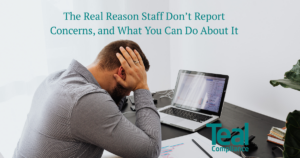The wicked, the criminals, are continuously innovating, and creating new ways to make money out of crime. They are also money laundering, on an epic scale. The scale of money laundering in the UK is thought to be £90bn a year.
2017 was a year of change in AML and financial crime, with the long awaited Money Laundering, Terrorist Financing, Transfer of Funds (Information on the Payer) Regulations 2017 (MLR), and the Criminal Finances Act. There was plenty to think about and do. But it doesn’t stop there. The wicked don’t, so we can’t. Here are 4 things you will need to tackle in 2018.
1. Final Guidance
The Legal Sector Affinity Group have prepared guidance for firms on MLR 2017, which is currently in draft form on the Law Society’s website. The guidance has been submitted to HM Treasury, and is currently going through the approval process. It is hoped the guidance will be finalised within the next couple of months. Once the final guidance is released, firms will need to take steps to finalise their policies and procedures.
2. Independent Audit Function
Regulation 21 MLR requires that a firm, where appropriate to the size and nature of its business, establish an independent audit function to examine and evaluate the adequacy and effectiveness of the policies, controls and procedures. Firms will need to consider how to resource this, whether they can do that internally or externally, and consider the scope. Many firms already include CDD in their file review process, but audit may be much wider, reviewing accounts and risk assessment processes.
3. Implementation of the Criminal Finances Act (CFA)
2017 saw the introduction of the CFA, and the Corporate Offence of Failing to Prevent the Criminal Facilitation of Tax Evasion. Firms also need to be aware of the provisions around the extension to the Moratorium Period (r10), the new Information Sharing Powers (r11) and Further Information Orders (r12) which came into force on the 31st October 2017. Policies and procedures for dealing with these may need to be introduced, and staff training delivered, particularly in relation to the Information Sharing Powers, and how to respond should someone seek to share information about a client with them.
4. Amending Directive to 4MLD
On the 15th December the amending directive to the fourth Money Laundering Directive was agreed. This revision of the 4MLD, aims to:
- increasing transparency on who really owns companies and trusts by establishing beneficial ownership registers;
- preventing risks associated with the use of virtual currencies for terrorist financing and limiting the use of pre-paid cards;
- improving the safeguards for financial transactions to and from high-risk third countries;
- enhancing the access of Financial Intelligence Units to information, including centralised bank account registers
Member states will have 18 months to implement these changes, so firms may need to make further changes to their policies and procedures soon.
It is clear we are a long way off from “Business as Usual” in AML, with a lot of change still to navigate and embed.
Get in touch
For more information about our AML services, simply get in touch with our experts today.




